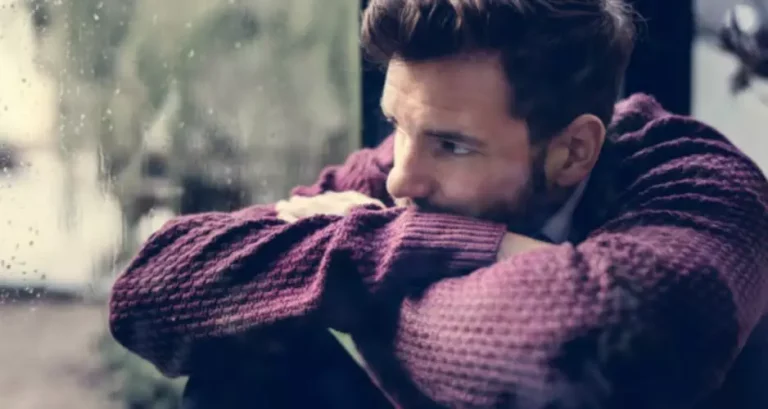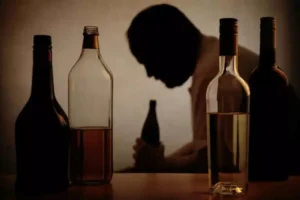
The younger the child, the easier it will be to get the relationship back on track. With older children, it will take time and patience to show the child that this change is permanent and that the parent will be keeping their word about being around for the child going forward. As you face another emotionally dysregulating departure from your loved one, your stress system goes into high gear, releasing stress chemicals in your body, which motivates you to “do something about this! ” As you anticipate the relief from the stress, your brain releases chemicals such as dopamine, which offer that positive feeling of anticipation. The brain chemicals released when trying to detach are vastly different from the neurotransmitters and hormones released when you are with your loved one. The main chemical released during times of stress (including emotional stress) is cortisol.
Individualized, evidence based treatment, to fit your needs.
By doing this, the therapist can help the patient recognize the negative consequences of the addiction and dispel any illusions that it is not harmful or under control (Foulds et al., 2018). For example, the therapist may use imagery to evoke a recent image of the patient’s obsessive gambling at a racetrack, and then bring in the image of the patient’s new boyfriend walking in and witnessing the behavior. This allows the patient to see and feel the impact of the addiction on their real life (Tapia et al., 2018). Therapeutic interventions that involve behavioral exposure can help patients build resilience and manage difficult emotions (Hayes et al., 2004).
- Planning in advance a way out of high-risk situations—whether an event, a place, or a person—helps support intentions in the face of triggers to use.
- Tailoring treatment to these elements provides the best chances of long-term recovery.
- Studies show that those who detour back to substance use are responding to drug-related cues in their surroundings—perhaps seeing a hypodermic needle or a whiskey bottle or a person or a place where they once obtained or used drugs.
- That way you can get help making amends from professionals and peers by bringing up the topic in addiction therapy.
ADDICTION: A FAMILY DISEASE

By the time the therapy advances to the treatment phase, the clinician would have developed a comprehensive case conceptualization and mode map (Edwards, 2022). The case conceptualization also helps clinicians prioritize alternative foci within specific sessions (Green and Balfour, 2020). For decades, treatment providers have hoped that taking part in intensive 30, 60, or 90-day programs followed by outpatient treatment and community support would lead to long-term recovery for most people (NIDA, 2020a,b).
How can addiction break trust?
Gathering this information will assist the therapist in rescripting, healing the original hurts, and meeting the patient’s core needs (Arntz, 2015). It will also provide insight into the patient’s current triggers that lead them to engage in substance or behavioral processes (Fatseas et al., 2015). These methods aim to directly tackle the barriers preventing the patient from achieving their desired behavior change goals (Gonzalez-Castro and Uluğ, 2022).
Quality time is a huge factor in rebuilding and maintaining friendships. If you’re still struggling to communicate, consider couples counselling. If your parents don’t answer your first phone call, reach out again tomorrow. If your partner doesn’t accept your apologies, try a different approach and make a gesture instead. But it’s a marathon, not a sprint – just take your time and keep moving forward, even if progress is incremental.
Many communities have sober meetups, social groups, and recreational activities designed for individuals in recovery. These settings can provide a safe and supportive environment for making new friends who are committed to a sober lifestyle. romantic relationships in recovery In the delicate journey of a loved one’s recovery from addiction, patience and compassion are our guiding lights. Just as a garden thrives with tender care, rebuilding relationships damaged by addiction requires a similar nurturing touch.
Time to Address Underlying Addiction Causes
Support group meetings and healthy social activities reinforce a sense of belonging and purpose, laying the foundation for long-term recovery. Activities like exercise classes, creative hobbies, and volunteer work provide positive connections. If you’re recovering from addiction, it may take several months to re-learn healthy habits and coping skills.
Being Patient and Purposeful
Part of this process is accepting that repairing the damage your addiction has done to your relationships will only happen gradually over time—based on what you do rather than what you say. The saying “actions speak louder than words” is especially accurate related to recovery. Relationships can be a source of support, or they can be stressors that threaten sobriety. It’s very common for loved ones to blame relationship distress on the addiction, and that idea is often reinforced by movies, recovery meetings, and even treatment providers. What about the ways that loved ones may be unintentionally making it more difficult for someone to stay sober? Those topics get much less attention, and people may feel guilty about even considering that their relationships have contributed to their substance use.
Rebuilding Relationships During and After Recovery: A Guide to Healing and Reconnecting

Holding onto these negative emotions can be toxic and prevent us from moving forward in our recovery. By forgiving others and ourselves, we can release these negative feelings https://ecosoberhouse.com/article/why-we-have-a-fear-of-being-sober-5-fears-about-it/ and begin to heal. To make honest and open communication work, both parties must be committed to understanding each other’s perspectives without judgment or criticism.
- Recovery suggests a state in which the addiction is overcome; clinical experience and research studies provide ample evidence.
- In leaving addiction behind, most people have to restructure their everyday life, from what they think about and who they spend time with and where, to how they use their time, to developing and pursuing new goals.
- Chair work is an experiential intervention commonly used in psychotherapy.
